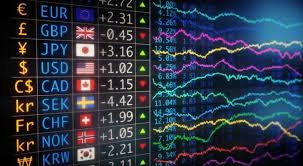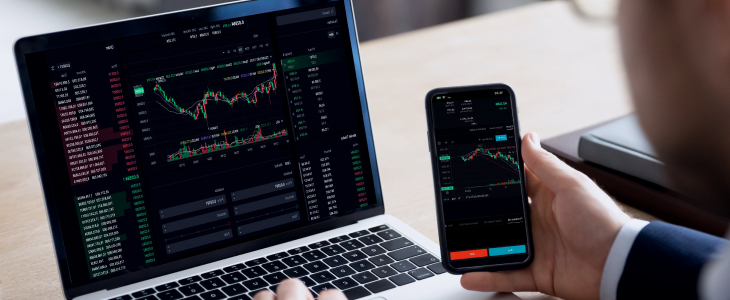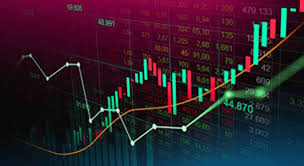
Forex prop trading, short for proprietary trading, is a form of trading where firms trade their own capital to generate profits. In this system, traders are often supported by the firm’s resources and expertise, enabling them to focus on executing trading strategies without the constraints often faced in retail trading. For those interested in this exciting realm, it’s crucial to understand the environment and opportunities it presents. In Bangladesh, for instance, forex prop trading Bangladeshi Trading Platforms offer various resources for new and experienced traders alike, allowing them to explore the world of prop trading and Forex markets.
What is Forex Prop Trading?
Forex prop trading involves financial firms using their own capital to trade in the foreign exchange market. Unlike traditional retail trading, where individuals trade their own funds, prop trading allows traders to leverage the capital of the firm. This significantly increases the potential for profit but also poses risks, as the firm’s capital is at stake. Prop trading firms typically recruit skilled traders and provide them with the tools and environment necessary for effective trading, including advanced trading platforms, market research, and risk management systems.
The Structure of Forex Prop Trading Firms
Forex prop trading firms operate on a unique business model. They hire traders who are often compensated based on their performance—commonly through profit-sharing agreements. By aligning the interests of traders and the firm, there’s a mutual incentive to maximize returns while managing risk effectively. Firms often provide intensive training programs for their traders to refine their skills and strategies. The structure of these firms may vary; some operate on a desk-based model, while others may provide remote trading opportunities, depending on their operational strategies and resources.

Benefits of Forex Prop Trading
There are several advantages to engaging in Forex prop trading. Firstly, traders have access to larger amounts of capital compared to retail trading, which allows for greater trading volume and potential profits. Additionally, firms usually provide traders with a plethora of resources—such as cutting-edge trading software, research materials, and mentorship—that can enhance trading performance. The collaborative environment of a prop firm can lead to valuable networking opportunities and the exchange of ideas among traders, fostering continuous learning and improvement.
Challenges and Risks of Forex Prop Trading
Despite the numerous benefits, Forex prop trading also comes with its own set of challenges. One key challenge is the pressure to perform consistently, as traders’ income is often tied directly to their performance. Losses can lead to termination, creating a high-stress environment. Furthermore, prop trading requires a solid understanding of risk management and market dynamics, as traders are directly responsible for the firm’s capital. This adds another layer of complexity and responsibility that traders must navigate.
How to Get Started in Forex Prop Trading
If you’re interested in pursuing a career in Forex prop trading, the first step is to educate yourself on the intricacies of the forex market. Familiarize yourself with trading strategies, risk management techniques, and economic indicators that influence currency movements. Once you feel confident in your knowledge, the next step is to seek out reputable prop trading firms. Look for firms that offer comprehensive training programs, mentorship, and the right fit for your trading style. It’s crucial to conduct thorough research and perhaps even speak to current or past traders to gain insights into the firm’s culture and profitability frameworks.
Comparing Forex Prop Trading to Other Trading Models

Forex prop trading differs significantly from traditional retail trading and other trading models. Retail traders typically operate with their own funds and bear the full brunt of losses, whereas prop traders can mitigate some of their risks through the backing of their firms. Additionally, institutional trading differs in scale and approach; while prop trading firms often focus on high-frequency trading strategies and capitalize on small market movements, institutional trading may engage in longer-term investments with broader strategies in mind.
Regulatory Considerations in Forex Prop Trading
Forex prop trading operates within a regulatory environment that varies by region. In many jurisdictions, prop trading firms must adhere to specific rules intended to protect investors and maintain market integrity. For example, firms may need to register with financial authorities and comply with capital requirements, transaction reporting, and other regulatory obligations. Awareness and adherence to these regulations are essential for the longevity and success of prop trading firms and their traders.
Conclusion
Forex prop trading presents an exciting opportunity for skilled traders looking to maximize their potential in the foreign exchange market. By leveraging the capital and resources of a firm, traders can focus on developing and executing strategies without the constraints faced in traditional trading environments. However, it’s essential to approach it with a clear understanding of the benefits and challenges involved. As the forex market continues to evolve, prop trading will likely remain a dynamic and essential component of the trading landscape.
Further Resources
For those interested in exploring Forex prop trading further, numerous resources are available online. Consider investing in books, online courses, or webinars focused on trading strategies and market analysis. Engaging with trading communities can also provide additional insights and support, making your foray into Forex prop trading a fruitful endeavor.

